
Mortier was an organ manufacturer from Antwerp, Belgium that made dance organs and orchestrions.

Mortier was an organ manufacturer from Antwerp, Belgium that made dance organs and orchestrions.
The company was founded by Theophile Mortier (1855–1944). Mortier started in 1898 as a vending agent for the Parisian organ builder Gavioli & Cie, in a period when the French and German organ industry was in full bloom. Theophile Mortier was originally the manager of a dance hall, in which there was always a Gavioli organ playing. He made it a habit to sell the installed organ after a short while. He was fortunate enough most of the time to make a profit on selling these used organs. As time went by he became more and more an organ dealer and a very good customer of Gavioli. He set up a repair shop in order to provide maintenance and repair for the organs, which he had sold. The organ builder Guillaume Bax managed this shop. In 1906 Mortier started to build organs himself, as an annex of the Gavioli company.
Due to internal operations difficulties, Gavioli could after a while not deliver enough orders and Mortier began to manufacture the dance organs under his own name. After the First World War the company expanded to a size where they employed 80 personnel and had a capacity to build about 20 large dance organs per year. No other manufacturer has matched the cubic meter volume of organs produced by Mortier. The company stayed active until 1948.

An original equipment manufacturer (OEM) is a company that produces parts and equipment that may be marketed by another company. However, the term is ambiguous, with several other common meanings: It sometimes means the maker of a system that includes other companies' subsystems, an end-product producer, an automotive part that is manufactured by the same company that produced the original part used in the automobile's assembly, or a value-added reseller.
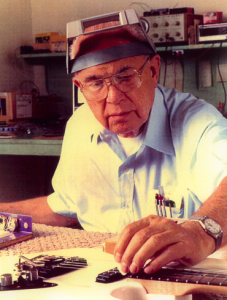
Clarence Leonidas Fender was an American inventor and founder of the Fender Musical Instruments Corporation.

H.K. Porter, Inc. (Porter) manufactured light-duty railroad locomotives in the US, starting in 1866. The company became the largest producer of industrial locomotives, and built almost eight thousand of them. The last locomotive was built in 1950, but the company continues to produce industrial equipment to this day.
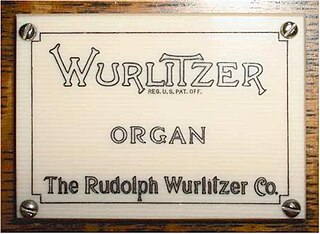
The Rudolph Wurlitzer Company, usually referred to as simply Wurlitzer, is an American company started in Cincinnati in 1853 by German immigrant (Franz) Rudolph Wurlitzer. The company initially imported stringed, woodwind and brass instruments from Germany for resale in the United States. Wurlitzer enjoyed initial success, largely due to defense contracts to provide musical instruments to the U.S. military. In 1880, the company began manufacturing pianos and eventually relocated to North Tonawanda, New York. It quickly expanded to make band organs, orchestrions, player pianos and pipe or theatre organs popular in theatres during the days of silent movies.
The Holtkamp Organ Company of Cleveland, Ohio is America's oldest continuously operating pipe organ workshop. The company was founded in 1855 by Gottlieb Votteler. The work produced by the shop has evolved over the years in terms of architectural style, sound, and mechanism. During this time, the company has had a number of names, including: The Votteler Organ Company, The Votteler-Hettche Organ Company, The Votteler-Holtkamp-Sparling Organ Company, and finally in 1951, The Holtkamp Organ Company.
Carl Frei was a German organ builder, composer and music arranger who founded a company that manufactured fairground and street organs.

Tom Ritchey is an American bicycle frame builder, Category 1 racer, fabricator, designer, and founder of Ritchey Design. Ritchey is a US pioneer in modern frame building and the first production mountain bike builder/manufacturer in the history of the sport. He is an innovator of bicycle components that have been used in winning some of the biggest cycling competitions in the world including the UCI World Championships, the Tour de France and the Olympics. In 1988, Ritchey was inducted into the inaugural Mountain Bike Hall of Fame in Crested Butte, Colorado : and 2012, inducted to the United States Bicycle Hall of Fame in Davis, California.

The Yorkshire Engine Company (YEC) was a small independent locomotive manufacturer in Sheffield, England. The company was formed in 1865 and produced locomotives and carried out general engineering work until 1965. It mainly built shunting engines for the British market, but also built main line engines for overseas customers.
Holdsworth was a bicycle manufacturer in London, England. It was created by William Frank Holdsworth, known as "Sandy", and the brand is now owned by Planet X Limited based in Rotherham, Yorkshire.

William Mason was a master mechanical engineer and builder of textile machinery and railroad steam locomotives. He founded Mason Machine Works of Taunton, Massachusetts. His company was a significant supplier of locomotives and rifles for the Union Army during the American Civil War. The company also later produced printing presses.
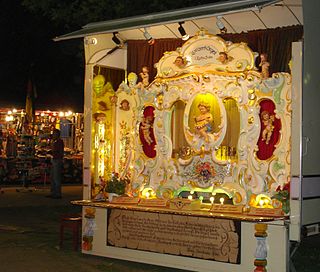
A fairground organ is a musical organ covering the wind and percussive sections of an orchestra. Originated in Paris, France, it was designed for use in commercial fairground settings to provide loud music to accompany rides and attractions, mostly merry-go-rounds. Unlike organs for indoor use, they are designed to produce a large volume of sound to be heard above the noises of crowds and fairground machinery.
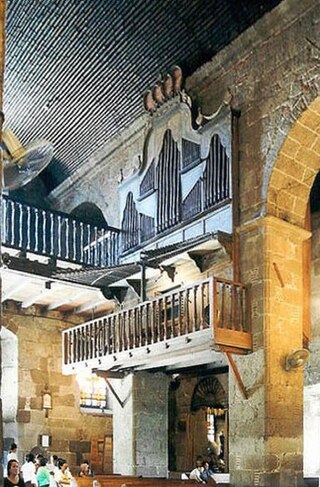
The Las Piñas Bamboo Organ in St. Joseph Parish Church in Las Piñas, Philippines, is a 19th-century church organ. It is known for its unique organ pipes; of its 1031 pipes, 902 are made of bamboo. It was completed after 6 years of work in 1824 by Father Diego Cera, the builder of the town's stone church and its first resident Catholic parish priest.

A street organ played by an organ grinder is a French automatic mechanical pneumatic organ designed to be mobile enough to play its music in the street. The two most commonly seen types are the smaller German and the larger Dutch street organ.
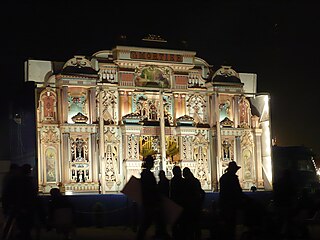
A dance organ is a mechanical organ designed to be used in a dance hall or ballroom. Originated and popularized in Paris, it is intended for use indoors as dance organs tend to be quieter than the similar fairground organ.
Gavioli & Cie were a Franco–Italian organ builder company that manufactured fairground organs in both Italy and later France.
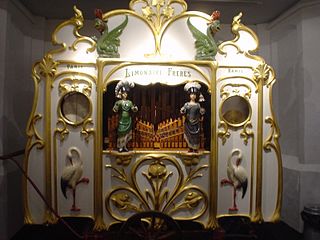
Limonaire Frères were an amusement ride, street organ and fairground organ builder, based in Paris, France, during the 19th and early 20th century.
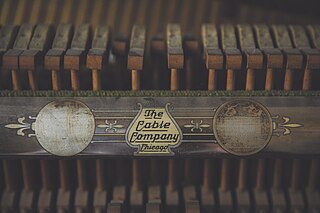
The Cable Company was an American manufacturer and distributor of pianos and reed organs that operated independently from 1880 to 1936.
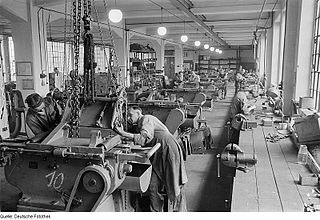
A machine factory is a company that produces machines. These companies traditionally belong to the heavy industry sector in comparison to a more consumer oriented and less capital intensive light industry. Today many companies make more sophisticated smaller machines, and they belong to the light industry. The economic sector of machine factories is called the machine industry.
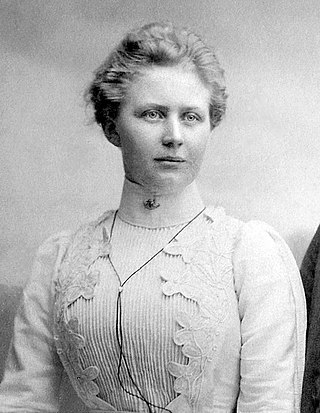
Elizabeth Trump was a German-American businesswoman. In 1902, she married Frederick Trump, who died in 1918. After his death, Trump co-founded the real estate development company E. Trump & Son with their son, Fred, to manage and increase their real estate holdings. Through Fred, she was the paternal grandmother of Donald Trump, who served as the 45th president of the United States from 2017 to 2021 and in 2024 became the president-elect.

Barrel Organ Museum Haarlem is a museum in Haarlem in the Netherlands. Next to the presentation of a variety of barrel organs, accessory objects and documentation material, there is a ballroom where music of the organs is being played. The museum was opened in 1969 by the foundation Het Kunkels Orgel. Since 2014 it has its current location at a business park at the Küppersweg.